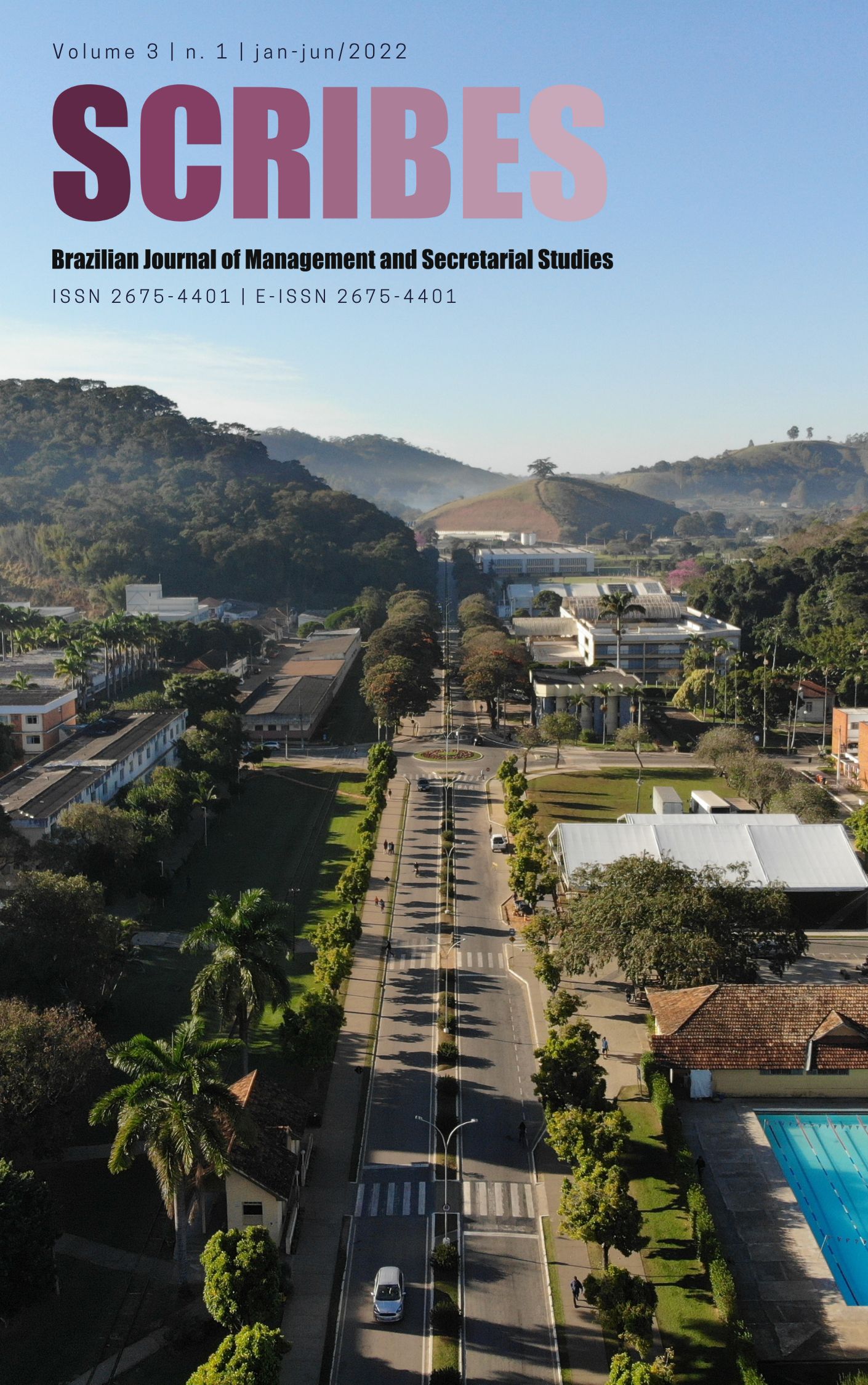Trabalho remoto durante a pandemia da Covid-19: um estudo com egressos de Secretariado Executivo
DOI:
https://doi.org/10.33228/scribes.2022.v1.13607Abstract
Abstract: The year 2020 was marked by the worldwide pandemic of the coronavirus (Covid-19). In view of this, many professionals were advised to work at home, that is, in the home office mode. It is believed that for Executive Secretary professionals this modality represented a novelty, differentiating themselves from professionals who work as independent remote secretaries. In line with this, this study is justified by the fact that it seeks to understand how these professionals adapted to the challenges of the pandemic, with the purpose of identifying the dynamics of adaptation in organizations and how these professionals acted in face of this scenario. Regarding methodology, a qualitative, exploratory, descriptive approach was adopted. The data collection technique was carried out by means of a questionnaire addressed to graduates of the secretarial course at the Universidade Estadual do Oeste do Paraná (UNIOESTE). The results of the research indicate that many secretarial professionals had to work remotely during the pandemic and that they faced challenges. Many secretarial professionals had to work remotely during the pandemic and faced challenges in adapting. On the other hand, in view of this, new possibilities for the performance of the secretarial professional in the remote area have been expanded and this study has made possible contributions in this sense.
Keywords: Remote Working. Executive Secretary Graduates. Covid-19 Pandemic.
Downloads
Downloads
Published
How to Cite
Issue
Section
License
Published authors agree on the following items:
a. Authors keep copyright ownership whilst ceding to SCRIBES the right to a first publication. The material is also simultaneously licensed under the Creative Commons Attribution-NonCommercial 3.0 Unported Licence, which allows its publication with mutual recognition of authorship and initial publication through SCRIBES.
b. Authors are authorised to engage in third-party contracts independently, as long as they are pursuing a non-exclusive publication of the article originally published in this journal, such as having it appended to an institutional repository or included in a book as a chapter. Authorship and original publication by SCRIBES must still be acknowledged.
c. Authors have permission to and are encouraged to publish their research online, such as in institutional repositories or in their own personal web pages. They are allowed to do that before or after the editorial process, once it inspires any opportunistic alterations to be considered during the aforementioned process, and increase the content’s impact and value as a quotable work (read more on The Effect of Free Access).




